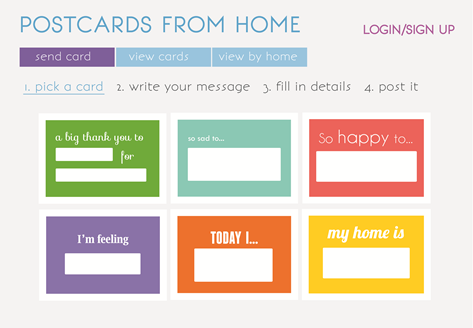 Alison Hopkins explains the merits of a public online feedback system for social care. Through a feedback model that suits the care sector, one that responds to the characteristics of the service and its users, people will know what standards to expect, see when providers are failing to meet those standards, and feel more empowered to hold providers to account.
Alison Hopkins explains the merits of a public online feedback system for social care. Through a feedback model that suits the care sector, one that responds to the characteristics of the service and its users, people will know what standards to expect, see when providers are failing to meet those standards, and feel more empowered to hold providers to account.
There has been much talk of a TripAdvisor-style service for social care over the last year, stimulating debate about the pros and cons of this in a care environment. Some argue that it’s entirely inappropriate for the public to review and rate care services. Others see the potential benefits of this kind of feedback, and a few are resigned to its inevitable arrival in the sector.
Government is encouraging the development of new services and a number of different approaches are springing up to provide an online platform for review and feedback. It is still early days so none has yet developed into a fully fledged service.
At Consumer Focus we have been looking into people’s use of and trust in online feedback in general, available here. It isn’t a perfect system but consumers value being able to share information. The development is one of the most empowering developments of the last decade, giving consumers a chance to speak directly to one another about their experiences – good and bad.
We believe that the time is right to open up care services more widely, and that user feedback has an important part to play. The way the care sector is developing with an emphasis on increasing choice and paying for care services directly, means that demand for information will increase. And that includes demand for user-generated information. There is also a huge need for greater transparency in the sector so that people know what standards and quality to expect, and are able to speak out openly when that is isn’t provided.
The key thing now is not to get hung up on the rights and wrongs of Tripadvisor, but to develop a model that suits the care sector, one that responds to the characteristics of the service and its users. This means starting from where people are in their thinking; finding out what they information want and how they want to use feedback. And then to create the right conditions for people to feel confident and motivated to share their views and experiences.
In our experience the only effective way to achieve this is to work directly with service users and the Today I project set out to do this: getting insights into what information people want and then developing a concept in response to those needs. Working with a design agency we have produced and tested a template for collecting feedback that can be applied across the whole care sector. Today I… told my story – Sharing experiences of social care – Consumer Focus
People told us they wanted:
- feedback on ‘real’ experiences, the ins and outs of looking for and finding care
- what the actual service is like, including the people (staff and service users)
- narrative accounts, not ratings
- the potential to open a dialogue with external world: friends and family as well as wider so that others can find out about services.
The key features people wanted us to build in to the model included:
- flexibility: the option to provide feedback ‘as and when’
- use of natural language (not formal, technical or official jargon)
- requiring minimal effort so that if feels a normal part of the day
- familiar feel and terminology, ‘on my own ground’
- the option to remain anonymous
- an independent service that people can trust to provide first-hand experiences and interactions with peers
The design we developed with care users is based on a picture postcard that can be completed online or offline and whenever people want. It provides space for a brief narrative and encourages people to say how they are today. It is designed to encourage anecdotes and conversations that can be shared.
Care users responded positively to the concept. They quickly took to the cards, especially the ‘my home’ prompt and suggested other opening lines such as ‘I wish….’ ; ‘a word of advice…’; and ‘I like..’ they wanted to add pictures and share the cards with their friends and family. They were keen to share more widely via an online service as long as the proper safeguards were in place.
Once online, cards from all areas of care would be searchable, for example by the name of the service user or the service type, location, and feedback theme. The service could be extended to include feedback from family, friends, or carers – clearly categorised so that readers know the difference.
The service could be linked to local, regional and national information, with the cards providing the user perspective. It has the potential to develop further, linking to networking sites or adding Q&A sections. But the core would remain as gathering and providing peer feedback.
They were not complacent about the challenges of introducing feedback into care system but felt the potential benefits outweighed the downsides. Consumers are well aware of rogue reviews and the need to balance verification against privacy, for example. They were deeply concerned to avoid a situation where criticism and negative feedback about care services resulted in damaging personal consequences -for staff members or for care users.
Consumers were clear that care services are not the same as ‘buying stuff’. People are in an ongoing relationship – and to varying degrees dependent on – with their care providers. This is easier to identify individuals and makes people reluctant to criticise, especially when there is very little tradition or culture of feedback in the sector. But the value of direct feedback as an information source, and the increased transparency it facilitates makes it worthwhile.
In a more open system people will:
- Know what standards to expect
- See when providers are failing to meet those standards
- Feel more empowered to hold providers to account.
Consumer Focus is making the design template available now so that others can take it forward, use it in different care settings and try out an online version. It is high time we had a public online feedback system that is not just informative but transformative, and our concept provides a springboard for action.
Note: This article gives the views of the author, and not the position of the British Politics and Policy blog, nor of the London School of Economics. Please read our comments policy before posting.
Alison Hopkins is Principal Policy Advocate at Consumer focus.








